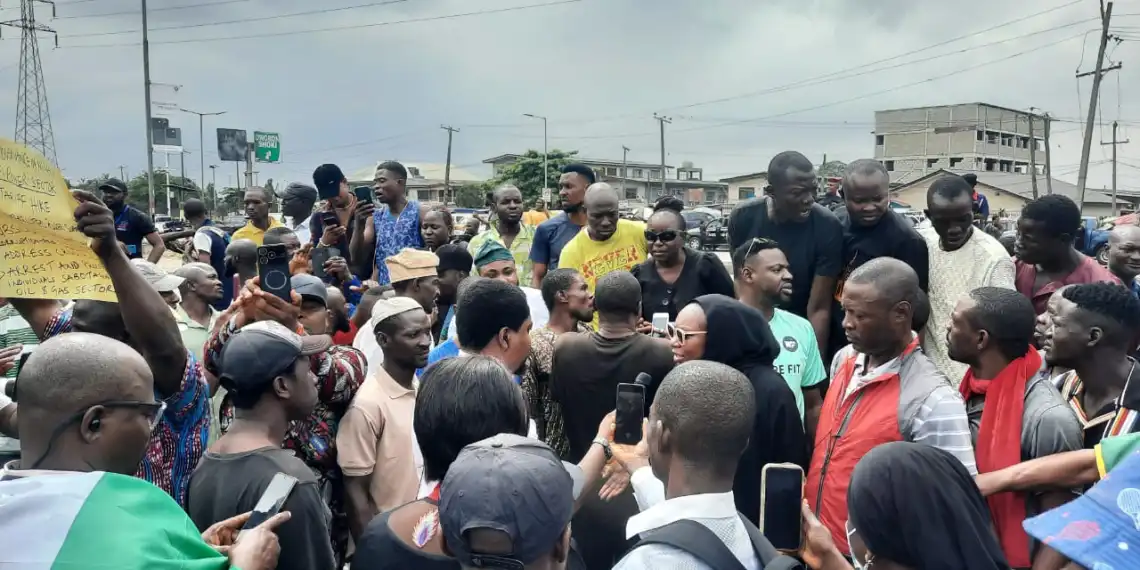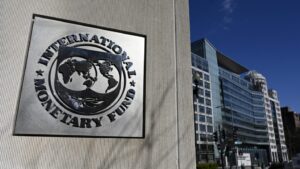Safeguarding Nigeria’s Poor: IMF Calls on Nigerian Government to Utilize Subsidy Savings for Vulnerable Populations

Safeguarding Nigeria’s Poor: IMF Calls on Nigerian Government to Utilize Subsidy Savings for Vulnerable Populations
As Nigeria navigates its economic recovery, a recent call from the International Monetary Fund (IMF) has urged the Nigerian government to protect its most vulnerable citizens by using the savings from fuel subsidy removal. The IMF’s message underlines the critical need for strategic allocation of funds to support the poorest Nigerians, highlighting the socioeconomic implications of subsidy reforms and the potential for a more equitable economic landscape. With millions affected by inflation and fuel prices, the IMF’s directive provides a pathway to bolster social protections and ease economic pressures on the country’s most fragile communities.
Fuel subsidies have long been a part of Nigeria’s economic landscape, aimed at reducing the cost of fuel for citizens. However, this approach has had consequences, draining government resources that could be directed elsewhere. The subsidy removal, a reform championed by President Bola Tinubu, is intended to reduce fiscal strain on the government. The IMF argues that these funds should now be redirected towards social programs and protections for the vulnerable, who are most affected by the removal.
This section provides a historical context for Nigeria’s subsidy program and examines the economic arguments for its removal, particularly in light of rising public debt and the need for a more sustainable economic model.
The IMF has emphasized the importance of redirecting subsidy savings toward social programs that directly benefit Nigeria’s impoverished communities. The organization has suggested expanding cash transfer programs, subsidizing food, and enhancing healthcare access to help Nigerians cope with the rising cost of living. By prioritizing these areas, the government can prevent an increase in poverty levels and help stabilize households that face mounting economic pressures.
This section explores the specific recommendations made by the IMF and how these measures could provide immediate and long-term relief to millions of Nigerians.
Fuel price increases have a widespread ripple effect, influencing food prices, transportation costs, and overall inflation. For low-income Nigerians, this rise in living costs is particularly challenging. The IMF’s suggestion to reinvest in social programs is grounded in the understanding that failing to protect vulnerable populations could lead to higher poverty rates and increased social unrest. By channeling funds into social welfare, Nigeria can better manage the economic shock for its poorest citizens and promote more stable, inclusive growth.
This section analyzes the socioeconomic effects of fuel subsidy removal on Nigeria’s most vulnerable populations, providing insight into why the IMF’s recommendations are crucial at this juncture.
Nigeria has existing social welfare programs, such as the National Social Investment Program, which includes cash transfers and school feeding initiatives. However, the IMF suggests that these programs should be scaled up using the freed-up subsidy funds. Expanding healthcare access, improving education, and providing food subsidies are all viable ways for the government to support its citizens. The key, according to the IMF, is ensuring transparency and efficiency in fund allocation, so that the benefits reach those who need them the most.
This section discusses potential programs that could be implemented or expanded, detailing how each could address different aspects of poverty and vulnerability in Nigeria.
The IMF’s recommendations highlight the importance of balancing fiscal discipline with social responsibility. By focusing on long-term investments in human capital, Nigeria can build a stronger, more resilient economy. The government faces the challenge of implementing effective social programs without exacerbating debt levels. A key part of this effort is ensuring that subsidy savings are used efficiently and transparently, fostering public trust and demonstrating a commitment to equitable economic growth.
This section reflects on the broader implications of subsidy savings, emphasizing the importance of creating a sustainable economic future that includes provisions for the nation’s most vulnerable citizens.
Nigeria stands at a crossroads. The removal of fuel subsidies provides an unprecedented opportunity to redirect resources toward those who need them most. The IMF’s call is not just a recommendation; it is an invitation to create a Nigeria where economic reforms benefit all citizens, especially the poor and vulnerable. By prioritizing social programs and ensuring transparent allocation of resources, Nigeria can pave the way for a more inclusive and resilient future, setting an example for other nations facing similar challenges.
Do you find Tmaq Media useful? Click here to give us five stars rating!





















